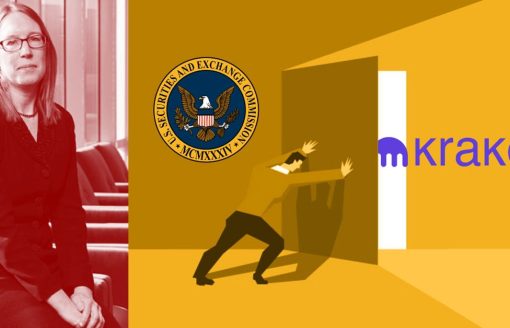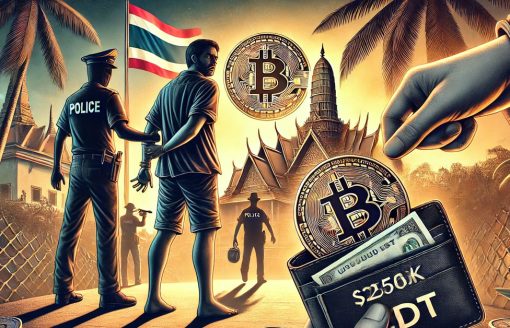Critics say the measure favors big banks while financial institutions quietly push back against the rise of decentralized, interest-bearing alternatives like stablecoins.
Stay in the know on crypto by frequently visiting Crypto News Today
Washington, D.C. — The U.S. House of Representatives—led by the Republican majority and backed by the Trump administration—voted this week to repeal a key rule aimed at curbing excessive fees charged by major banks. The rollback of this Consumer Financial Protection Bureau (CFPB) rule has drawn criticism from consumer advocates, who argue the move enables exploitative practices that hurt working-class Americans.
CryptoCaster Quick Check:
However, beneath the surface of the policy debate lies a deeper tension: the rising influence of stablecoins and decentralized finance (DeFi), which are increasingly seen as a threat to the traditional banking system. Industry analysts suggest the rollback is as much a political signal as it is a regulatory shift—marking a defensive response to the rapid evolution of consumer financial technology.
Overdraft Fee Rollback Seen as a Shield for Legacy Banking
The CFPB rule in question sought to limit “junk fees”—including overdraft charges and late payment penalties—which collectively cost U.S. consumers over $12 billion annually. While proponents of the repeal argue that rolling back the rule reduces compliance burdens for community banks, critics say the true beneficiaries are large institutions seeking to preserve fee-based revenue streams.
“This vote helps the banks, plain and simple,” said one senior policy analyst at a consumer rights watchdog. “And it comes at a time when banks are also losing ground to crypto-native financial products that offer users more flexibility and fewer hidden costs.”
Stablecoins Offer a Disruptive Alternative—and Banks Are Taking Notice
A major source of unease among traditional institutions is the rising popularity of stablecoins, digital tokens pegged to fiat currencies like the U.S. dollar. These assets—such as USDC and USDT—allow users to send, store, and earn yield on their money without relying on banks.
Stablecoins are now at the heart of the crypto economy, powering everything from peer-to-peer payments to complex financial products in the DeFi space. Their ability to offer interest-bearing functionality without the need for traditional savings accounts is particularly threatening to banks.
The rollback of CFPB protections, some argue, is not just about regulation—it’s about preserving the competitive advantage of legacy financial systems against the rise of programmable, permissionless money.
Crypto Advocates See Missed Opportunity for Financial Modernization
Coinbase CEO Brian Armstrong has been vocal about the need for clear U.S. legislation that allows consumers to earn interest on stablecoins, urging Congress to modernize financial laws in favor of open competition.
Supporters of Armstrong’s position argue that giving consumers the ability to earn yield from regulated stablecoins is a natural evolution in finance—one that could increase financial inclusion and transparency.
But critics warn that embracing stablecoin yield models could centralize crypto under the control of large custodians or exchanges, echoing the very systems DeFi sought to replace.
Trump Administration Backs Financial Deregulation Agenda
President Donald Trump, in his second term, has expressed support for financial deregulation as a path to economic growth and institutional strength. His administration’s backing of the House measure reinforces a pro-bank, anti-regulatory stance in line with earlier policies during his first term.
Trump has also been critical of central bank digital currencies (CBDCs), calling them a “dangerous expansion of government control over money.” However, his position on private stablecoins remains less defined—potentially opening the door to selective adoption or influence over emerging crypto regulations.
Senate Vote Expected to Be Largely Symbolic
With the Senate under Republican control, the repeal bill is expected to pass smoothly. Still, the broader implications lie in what this vote reveals: a strategic effort to bolster legacy finance while keeping decentralized alternatives at bay.
Whether or not a future regulatory framework under Trump will formally address stablecoins remains to be seen, but the tone from Capitol Hill suggests that protectionism for banks may come at the expense of crypto innovation.
Conclusion: A Struggle Between Control and Choice
At the heart of this political maneuver is a question about the future of money itself. Should consumers be allowed to move their financial lives to decentralized, blockchain-based alternatives, or should traditional institutions retain control of the rails?
The answer may depend on how aggressively the Trump administration and Republican lawmakers are willing to defend the status quo, even as crypto-native solutions become more attractive to younger and underbanked populations.
For now, the rollback sends a clear message: banks are not ready to give up their grip, and Washington—under Republican leadership—is helping them hold the line.![]()
If this article brought you clarity, insight, or value—support the work that made it possible.
At CryptoCaster, we report on Web3, crypto markets, and institutional finance with no billionaire owners, no shareholders, and no hidden agenda. While mainstream media bends toward Elon Musk, BlackRock, and JPMorgan narratives, we stay focused on what matters: truth, transparency, and the public interest.
We don’t just cover the headlines—we investigate the power structures behind them. From FTX and Ripple to the quiet push for CBDCs, we bring fearless reporting that isn’t filtered by corporate interests.
CryptoCaster is 100% paywall-free. Always has been. To keep it that way, we depend on readers like you.
If you believe independent crypto journalism matters, please contribute—starting at just $1 in Bitcoin or Ether. Wallet addresses are below.
Your support keeps us free, bold, and accountable to no one but you.
Thank you,
Kristin Steinbeck
Editor, CryptoCaster
Please Read Essential Disclaimer Information Here.
© 2024 Crypto Caster provides information. CryptoCaster.world does not provide investment advice. Do your research before taking a market position on the purchase of cryptocurrency and other asset classes. Past performance of any asset is not indicative of future results. All rights reserved.
Contribute to CryptoCaster℠ Via Metamask or favorite wallet. Send Coin/Token to Addresses Provided Below.
Thank you!
BTC – bc1qgdnd752esyl4jv6nhz3ypuzwa6wav9wuzaeg9g
ETH – 0x7D8D76E60bFF59c5295Aa1b39D651f6735D6413D
CRYPTOCASTER HEATMAP







